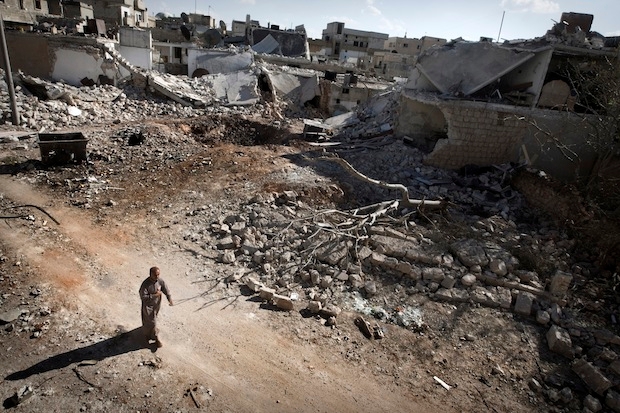‘It’s about chemical weapons. Their use is wrong and the world shouldn’t stand idly by.’
— David Cameron, 27 August‘The chemical massacre in Damascus cannot and must not go unpunished.’
— François Hollande, 30 August‘We lead with the belief that right makes might, not the other way around.’
— Barack Obama, 31 August
In their speech, in their manner and in their choice of language, the American President, the French President and the British Prime Minister have been impeccably clear about their motivations for military intervention in Syria. They don’t want to use force for economic gain. They aren’t in this for national interest.
Strictly speaking, they aren’t moved by humanitarian reasons, either. During the two years of fighting in Syria, more than 100,000 people have died, and more than two -million have been displaced. Syria’s neighbours now host one of the largest and potentially most destabilising refugee crises in the world. But that is not why America, Britain and France began their wobbly debate on intervention.
No, Barack Obama, François Hollande and David Cameron have been driven to contemplate intervention in Syria because of their belief in justice — or perhaps, because it’s an abstract ideal, one ought to write Justice. Obama’s tortured statements on Syria usually feature the word ‘accountable’ (as in ‘we can hold the Assad regime accountable’ or ‘all of us should be accountable’) as well as frequent use of the word ‘rights’. British and the French leaders (see above) have spoken of the chemical attack in Damascus as a violation of international law, as a crime that must be punished or as a wrong that must be righted.
One understands why: to speak of justice, of rights and of accountability is to sound statesmanlike and serious.








Comments
Join the debate for just £1 a month
Be part of the conversation with other Spectator readers by getting your first three months for £3.
UNLOCK ACCESS Just £1 a monthAlready a subscriber? Log in